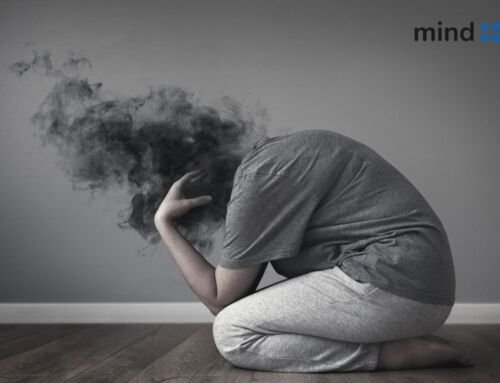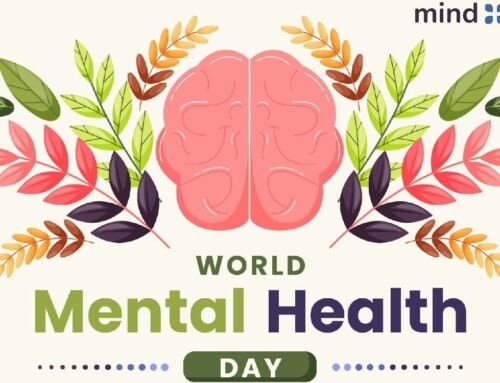Common Mental Health Issues in Women
By Saima Banoo, Clinical Psychologist
Depression and anxiety are two conditions that affect women more frequently than males. Additionally, there are certain diseases that only affect women. For instance, some women may experience signs of mental disorders such as prenatal depression, premenstrual dysphoric disorder, and perimenopause-related sadness during times of hormonal transition. There are no variations between males’ and women’s occurrence rates of other mental disorders, such as schizophrenia and bipolar disorder, according to the study. However, women may experience certain illnesses differently because some symptoms may be more prevalent in women than in males and because a person’s sex can impact how the illness develops.
The following mental health issues affect women more frequently:
Depression
According to the National Institute of Mental Health (NIMH), some depressive disorders are specific to women, and women are also more likely than men to encounter the disorder. Premenstrual dysphoric disorder, perimenopausal depression, and postpartum depression are a few of the mental illnesses linked to changes in women’s hormone levels. Perinatal depression, which occurs both before and after giving birth, is also known as postpartum depression.
The following are typical signs of depression:
- Feelings of hopelessness, worthlessness, and helplessness
- Crying spells
- Decreased interest in activities
- Decreased energy
- Decreased attention and concentration
- Suicidal ideation and self-harm
- Irritability
Anxiety
General anxiety disorder (GAD), according to the NIMH, is characterized by “excessive fear or worry” on the majority of days for a minimum of six months. Other anxiety disorders include separation anxiety disorder, phobia-related disorders (such as fear of flying, fear of heights, or fear of specific objects), obsessive-compulsive disorder, panic disorder, and social anxiety disorder (or social phobia). Women are substantially more likely than men to have an anxiety problem. Anxiety disorder symptoms include the following:
- Feelings of imminent tragedy or doom
- Hyperventilating, perspiring, sweating, or trembling
- Weakness or exhaustion
- Inability to pay attention
- Sleeplessness
- Other digestive issues, such as stomach discomfort
Perinatal Depression
According to WHO statistics, depression is the most common mental illness that 10 percent of pregnant women and 13 percent of new mothers face globally. Both types of women are affected by perinatal depression, which diminishes a woman’s capacity for function as well as the child’s growth. While perinatal depression and other mental diseases can affect pregnant women anywhere, the problem is most severe in underdeveloped nations, where the World Health Organization (WHO) estimates that 20 percent of mothers suffer postpartum depression. According to studies gathered by the World Health Organization (WHO), factors that contribute to perinatal depression include poverty, migration, stress, and being around violence.
Eating Disorders
Eating disorders are also considered as ‘mental health issues’ and they impact twice as many women as they do men. Most of the time, the causes of eating disorders are unknown, although researchers believe that culture, psychology, and biology are all implicated. There is a pervasive misconception that eating disorders are a result of lifestyle choices. Eating disorders, in actuality, are serious, usually fatal illnesses that are associated with a person’s eating behavior as well as related feelings and thoughts.
An individ ual’s obsession with food, weight, or body image may also be a sign of an eating disorder. Obsessive-compulsive disorder, anxiety and mood disorders, and problems with alcohol and other drug addictions are among the most common psychiatric diseases that coexist with eating disorders.
Postpartum Depression
Some women experience this subtype of perinatal depression within the first year following giving birth. Extreme despair, anxiety, and exhaustion dominate its symptoms, which make it difficult for the woman to take care of her and her child. The NIMH emphasizes that a mix of emotional and physical variables, such as those listed below, can cause the disease. These causes may include hormonal changes throughout the pregnancy and after delivery, a loss of sleep in the weeks and months following the birth of the child, and physical exhaustion and discomfort connected to the process.
The symptoms of postpartum depression differ from woman to woman, and many of them are simple to attribute to other causes, making the diagnosis difficult. The “baby blues,” which many new moms experience as a result of the anxiety, weariness, or melancholy that frequently accompany a baby’s birth can be specifically interpreted as postpartum depression.
Body Dysmorphic Disorder
According to the Cleveland Clinic, this illness is characterized by a person’s intense worry over a perceived physical deficiency. Body dysmorphic disorder (BDD) patients frequently seek validation for their appearance and may even feel so self-conscious about their appearance that they look for a cure. Any physical flaw that is thought to be present may be removed by plastic surgery as part of this treatment.
While both men and women experience the disease on an equal basis, expectations from society regarding physical attractiveness may make it more challenging for women to recover. People with BDD may find it difficult to perform at work, at home, and in their social lives due to their concerns with their looks.






